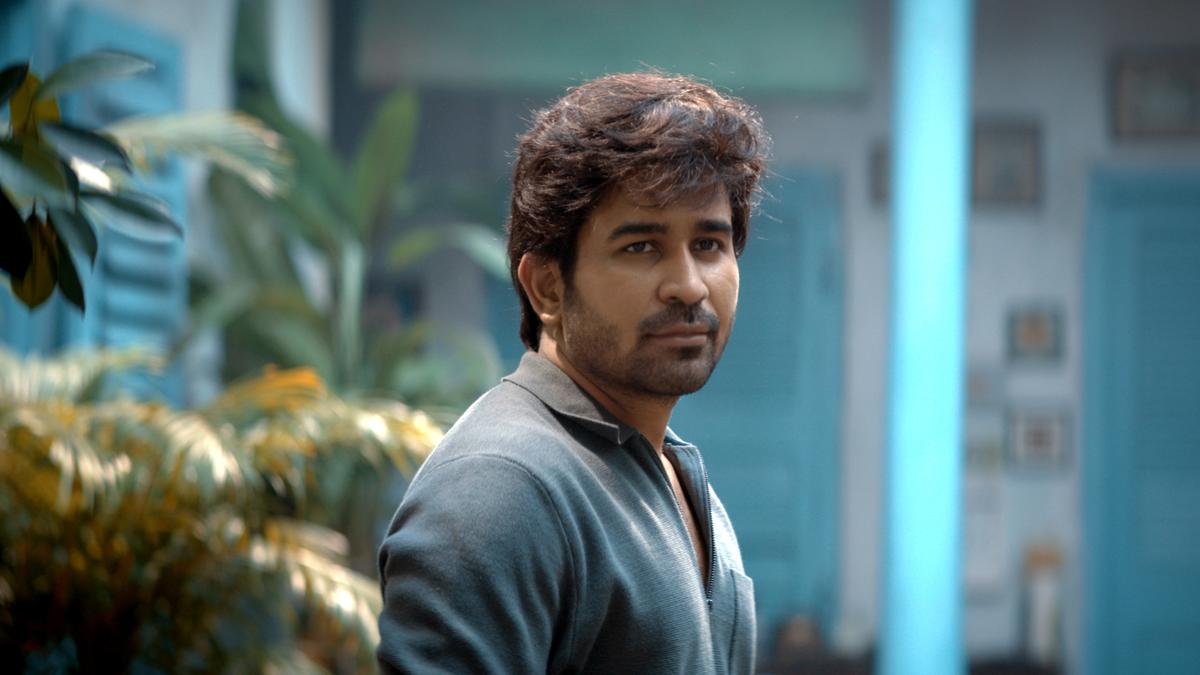
Vijay Antony interview on ‘Hitler’: I don’t have any political agenda
The Hindu
The multi-hyphenate Vijay Antony talks about his upcoming film ‘Hitler’, why the right story matters, being genre-fluid, the future of producing films and more
Vijay Antony is inarguably a trendsetter; after all, his biggest hit song as a composer, ‘Naakka Mukka’, starts with a line prophesying it to be the “massive hit of the year” and for his recent film’s promotion, he has pulled off something unique. The usual PR-driven interviews of celebrities for promotions happen at the same spot, giving them a template look. Perturbed by this, Vijay, along with an art director and his team, created a dynamic set-up where the entire look and feel of the interview room is changed for every interview, and everything from the chair and promotional posters in the background to the lights are changed to make sure each video looks unique.
“As we grow and gain knowledge in cinema, I’m also learning how important publicity is. I realised in my previous film interviews that all of them happened in the same room, and those videos looked weak and lacked depth. I wanted to give the quality people see in films wherever I appear, and maintain a standard during these promotions too,” says Vijay who is gearing up for his latest release, Hitler.
Vijay still consistently releases multiple films every year, a practice that used to be prevalent a couple of decades ago among most actors. He calls it a product of circumstances beyond his control, “The films I produced were released on time, but some of my other films were delayed. So when they are finally released, the span between the films gets reduced. Though that was not the plan, I don’t see anything wrong with it.”
“If the film is good, it will become a blockbuster irrespective of its release date. Viswasam and Petta which were released on the same day, and both became hits. If two Rajini sir or Vijay sir films come out on the same day, they will become blockbusters. It’s content that matters the most. I make sure at least a gap of four months is there between two of my releases; that’s when a film can be promoted well,” he adds.
Playing the devil’s advocate, I ask Vijay if this might lead to over-exposure and he retorts how it boils down to the strength of the content. He answers, “Irrespective of how often your titles release, what the movie talks about and whether it’s entertaining for the audience is all that matters. All I care about during narration is how good the story and screenplay is. In Romeo, the female lead character doesn’t like her husband and those around him would make fun of him. But the husband loves her and sacrifices a lot, so I see Romeo in the same vein as Pichaikkaran,” says Vijay as he segues into why that’s the USP of Hitler. “If a wrongdoer calls another man a bad person, then who is he? He must be a good man. For the evil-doers, this film’s protagonist is a Hitler.”
“If Mani Ratnam sir had given a chance to a person (Hitler’s director Dana SA) to assist him, it means there’s a lot of value in him. I enjoyed his previous film Vaanam Kottattum and if he’s coming to me with an action script, I believed I could accept it with confidence,” says Vijay who calls Hitler a political film. “I personally don’t have any political agenda and I feel the director would also say the same. The film only features political characters and their workings,” he adds.
“A film that runs well is what I would call a commercial film. Romeo is a film where I tried comedy after India Pakistan. Pichaikkaran was high on emotions and Kolaigaran was a thriller. I don’t care about a film’s genre,” says Vijay. Ask him how he differentiates his characters in all the thrillers he’s acted in — a genre he seems to prefer — and he replies, “I don’t do anything. There’s talk that I interfere in a film’s production. But if I’m the producer, I need to listen to the story and work out the budget; sometimes, I’m the music director and at times editor as well. So I stick to what I should be doing, but I don’t give any input on how a film should be.”











